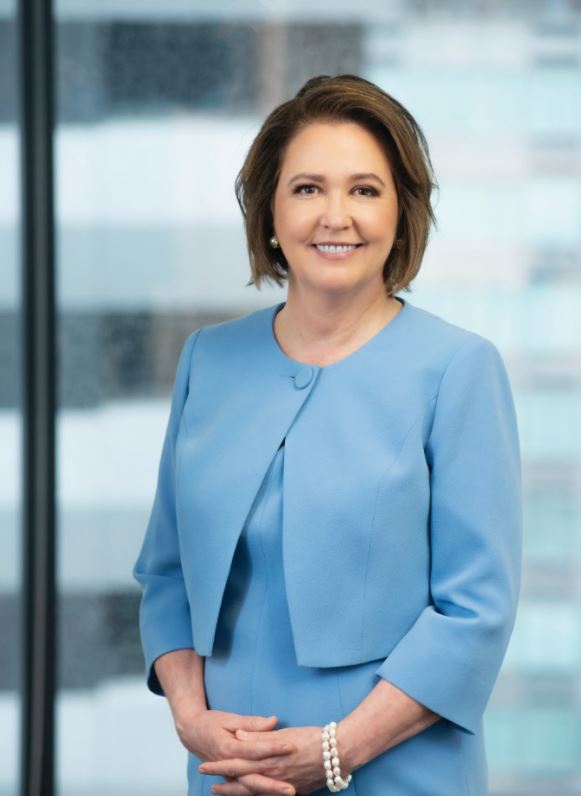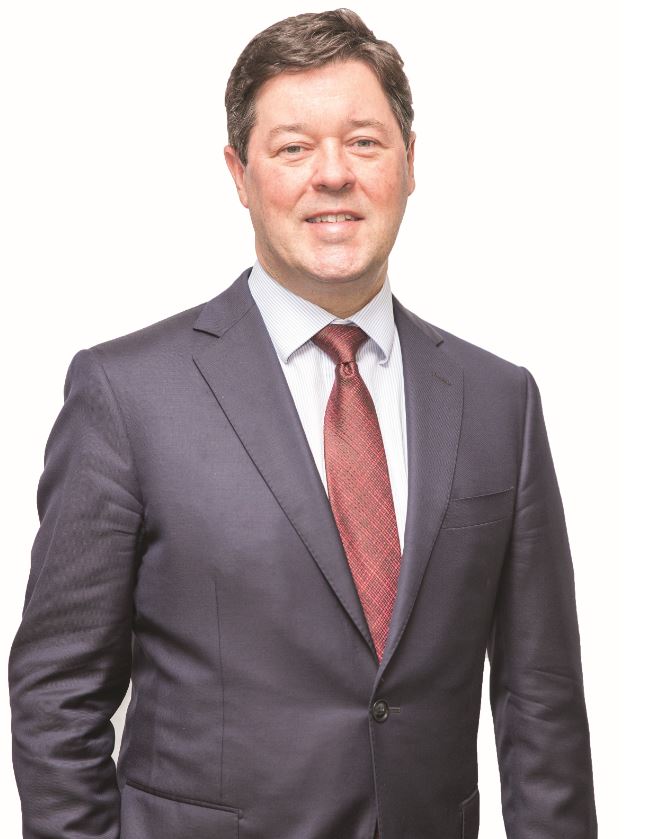- publish
A verification email has been sent.
Thank you for registering.
An email containing a verification link has been sent to .
Please check your inbox.
An account with your email already exists.
It's a small world
Listed@ASX Summer 2020/2021
Hot from the ASX Small and Mid-Cap Conference, five very different listed companies discuss their differentiators, challenges and strategies for attracting investors.

Susan Mitchell, CEO. Mortgage Choice
Susan Mitchell, CEO, Mortgage Choice (ASX:MOC)
What differentiates you from your competitors?
There are several listed small cap financial services businesses as well as some specifically in mortgage broking I consider competitors. What distinguishes us isthat as a franchise organisation, we’re capital light. We provide an alternative to a bank for people who want to invest in the home loan market. And, while we receive some revenue when a mortgage broker introduces a loan to a bank, we receive the rest over time. This makes us more resilient when times are tough.
How do you communicate to shareholders and investors?
We communicate mainly through investor presentations and the AGM. My contacts in investment banks often invite me to speak to overseas investors and, as we’re at the coalface of the home loan industry, I spend a lot of time talking about the market in general as well as Mortgage Choice.
A couple of things are quite difficult to get across. We’re required by accounting standards to present our results in a way that can be quite confusing. We create a simplified version and present them side by side to give a clear picture of how cash flows in and out of the business.
We also find some people buy and sell Mortgage Choice based on their views of what’s going to happen in the property market when that doesn’t always reflect the underlying value of the company.
What impact has COVID-19 had on the company?
The home loan market has gone crazy through COVID-19 – perhaps because people are taking advantage of historically low rates and banks’ cashback offers.
We and our franchisees moved quickly to working from home, and working remotely has proved to be really beneficial for us because it accelerated the uptake of technology. The home loan industry is strictly regulated, so there are many rules around how you meet people, interview them and check their identification which, before COVID-19, had to be done in person. Now we’re allowed to conduct interviews on Zoom calls, accept remote identification and use e-signatures.
When we brought out our results our price bounced a little so I think shareholders are happy with how we’ve handled things so far. But I’m very conscious we’re not done with COVID-19 yet.
What advice would you give to other small cap companies on ASX?
Give yourself plenty of time. I’ve found most investors like to meet the CEO and CFO to see how they work together and, even then, they’re likely to watch the company for a year or 18 months before deciding whether to invest.
Robert Edgely, Managing Director, SelfWealth ASX:SWF
What differentiates you from your competitors?
SelfWealth is one of the few online brokers listed on ASX. Bank-backed online brokers are the largest players in the market, but it’s not possible to invest directly in their online broking arms. Our clients are also using our platform to invest in the share market. So, if they have a positive experience and like our value proposition, they may decide to include SelfWealth in their investment portfolio.
How do you communicate with shareholders and investors?
We’re incredibly transparent and give as much information to our investors as we can. We also believe our business model is simple.
That said, our investors participate in our industry every day and know it exceptionally well, so everyone starts with a strong view. Explaining our business while understanding this context is one of the challenges we face.

Robert Edgely, Managing Director, SelfWealth
Articulating your strategy clearly and making it easy for investors to track your success against milestones and targets is extremely important and delivering on promises builds trust with investors.
Relationships in the stockbroking and capital markets are critical in ensuring you have the backing of stable institutional investors who understand your long-term vision and who can support you on the journey of growth. To achieve this, you must regularly present to institutional dealers, research analysts and corporate advisers within the same organisation.
These relationships will help you get on an institutional investor’s watchlist. Then, if you consistently deliver on your promises, you will eventually get an audience and can tell your story.
What impact has COVID-19 had on the company?
Our shareholders were quick to realise COVID-19 would create an opportunity for our business to grow. Our employees could efficiently work from home and our scalable technology was able to cope with the increased trading loads. COVID-19 also piqued our customers’ interest in the US share market, and we’re about to launch US trading on our platform, alongside a new iOS and Android app to facilitate trading on these markets away from a computer.
What advice would you give to other small-cap companies on ASX?
Understand investor relations isn’t something you can do now and then. You need to be relentless and consistent in talking about your business and its prospects to investors far and wide. You should also accept every opportunity to speak at a conference, on a podcast, or to hold a webinar and be ready to tell your story clearly and concisely.

Chris Tait, Chairman, Atomos
Chris Tait, Chairman, Atmos ASX:AMS
What differentiates you from your competitors?
We’re a deep video tech company playing on a global stage, working with some of the world’s biggest video-related companies such as Apple, and leading Japanese camera makers including Canon and Nikon. We’re in a unique position as an Australian company sitting in the centre of that ecosystem.
How do you communicate to shareholders and investors?
Shareholders can see we’re attracting substantial revenues by selling our products around our global networks. The challenge is to convey the potential of the products and services we can invent, build and bring to market.
We communicate this by explaining the overall business strategy and also by using examples of our products to bring the strategy to life.
We’ve been fortunate to have some great investors on board from the start who have continued to be supportive. Now it’s a case of working with our advisors and talking to as many people as we can to get the message out there. It’s a complex industry so we work with a team of specialist investor relations consultants to make sure people understand the opportunities.
What impact has COVID-19 had on the company?
It’s been a very, very tough time. On the business side, our supply lines were hit pretty early on in January and February because our products are manufactured in China. Then the pandemic began to affect our markets around the world. Many of our products are used in the entertainment industry, which just about died for a while.
We made savings where we could then raised some capital. In April, we started accelerating the development of products around high-quality streaming and, in June, our core sales started to return. So, while COVID-19 started out really scary, it created opportunities for us.
What advice would you give to other small-cap companies on ASX?
If you have a good product, it’s all down to communication. These days, people won’t invest unless they fully understand the potential for growth.
Adam Brimo, Chief Executive Officer, OpenLearning ASX:OLL
What differentiates you from your competitors?
OpenLearning is a proprietary, end-to-end online education platform that enables education providers to design and deliver short courses, micro-credentials and qualifications online in a collaborative, engaging and project-based style. Our main competitors are still focused on passive learning – watching a video and then doing a quiz – which isn’t meeting the needs of learners, education providers or employers.
With more than 2.5 million learners on our platform, we also have the ability to promote our clients’ courses directly to the market, particularly in Australia and south-east Asia.
We’re also open to working with any education provider or organisation that can deliver a quality education. We have 116 education providers on our platform, including nine of the 43 universities in Australia, as well as Open Universities Australia, which has 21 university partners.
How do you communicate to shareholders and investors?
There’s been a significant amount of research into different approaches to learning delivery. OpenLearning is built around the philosophy of social constructivism, and our key challenge is to communicate this approach and why it’s fundamental to our growth.

Adam Brimo, CEO, OpenLearning
We produce lots of webinars and podcasts, some with brokers and analysts who share them with their clients and we often create joint media releases with our partners to increase our visibility.
Our media and investor communication company has been fantastic but we typically handle investor enquiries ourselves. I believe investors considering an investment in a company our size want to engage directly with management and the board.
What impact has COVID-19 had on the company?
We listed in December 2019 so we only had a couple of months before everything became virtual. This presented some challenges but, without the usual travel, it also made it possible for us to engage a wider range of investors virtually in a shorter period of time.
COVID-19 has also increased the focus on online learning. This has accelerated our growth and shortened our sales cycle while providing new opportunities for growth.
At the moment, approximately 35 percent of our revenue comes from overseas. While we focus on partnering with Australian and Malaysian education providers, we have clients in 12 countries. We’ve seen growth in all of our geographies in terms of users – much more than we had predicted.
What advice would you give other small cap companies on ASX?
It’s important to communicate what makes your company unique and not to be shy about the details. You might think few investors would be interested in educational philosophy, but we’ve found they want to get to the heart of what drives a company’s success.

Henry Albrecht, CEO, Limeade
Henry Albrecht,Chief Executive Officer and Founder, Limeade ASX:LME
What differentiates you from your competitors?
Limeade is an employee experience company delivering solutions for wellbeing, inclusion, employee engagement, recognition and communication. We also use a common mobile interface that helps employers reach their people wherever they work. I don’t know of any other company that combines all of those different culture-building capabilities. I also don’t know of any other company that sells into the US$18.2 billion employee experience market. There are a few software-as-a-service players but, as they tend to have more of a small and medium enterprise customer base, we don’t really consider them competitors. We feel we’re unique in this sector.
How do you communicate to shareholders and investors?
When we’re talking to investors we focus on the value we deliver to our enterprise customers. For example, employees who feel cared for stay longer, do better work and are far more likely to recommend their company as a great place to work. This can have a big, positive impact on productivity and save any company a great deal of money.
Our business has had a year-on-year growth rate of more than 20 per cent for a number of years and we have more than 2.6 million users in 100 countries.
Being a disciplined financial company with a highly-diversified customer base on that scale has helped us to meet and exceed our investors’ expectations.
What impact has COVID-19 had on the company?
Our investor relations officer, Thomas Duthy, has seen increased interest in Limeade as COVID-19 continues to impact the global workforce.
Our business is all about the kinds of workplace challenges that have come to the surface in COVID-19 such as employee wellbeing, connecting with remote workforces and collaboration, as well as basic health and safety. Since the start of the pandemic we have stepped up our game. In some cases we have provided care solutions free of charge to companies that didn’t have time to get their budget organised before the corona virus hit. We’re really proud of that initiative, and also the fact we haven’t furloughed or reduced our own workforce.
The pandemic has also created a much more balanced playing field for us. I’m based in the US so it hasn’t been easy to arrange face-to-face meetings in Australia. Now every company on ASX is having virtual meetings so I’m getting to talk to many more investors than I was before.
What advice would you give to other small cap companies on ASX?
As a technology company we’ve found ASX a great place to list. For a foreign company like Limeade, the ASX was a very attractive option relative to venture capital or private equity funding for our business. Since listing, we have also met or exceeded our prospectus forecasts, which is important for any newly-listed company when building credibility with investors.
Related links
Subscribe to Listed@ASX
Download the “Listed@ASX” app - available from the Apple App Store and Google Play - or email listed@asx.com.au to request a hard copy of the magazine.
About the author

Domini Stuart, Freelance business writer
Domini has over 20 years’ experience writing about business for hard-copy and online publications including CEO Magazine, Company Director, Inside Franchise Business and the Australian and the New Zealand Institute of Insurance and Finance (ANZIIF) Journal.
About Listed@ASX magazine
ASX’s bi-annual Listed@ASX magazine covers listed company best practice and issues of interest. With professional journalism and a subscription list covering directors, CEOs, senior executives, company secretaries and advisers of listed companies it is a must-read for members of the ASX listed community.